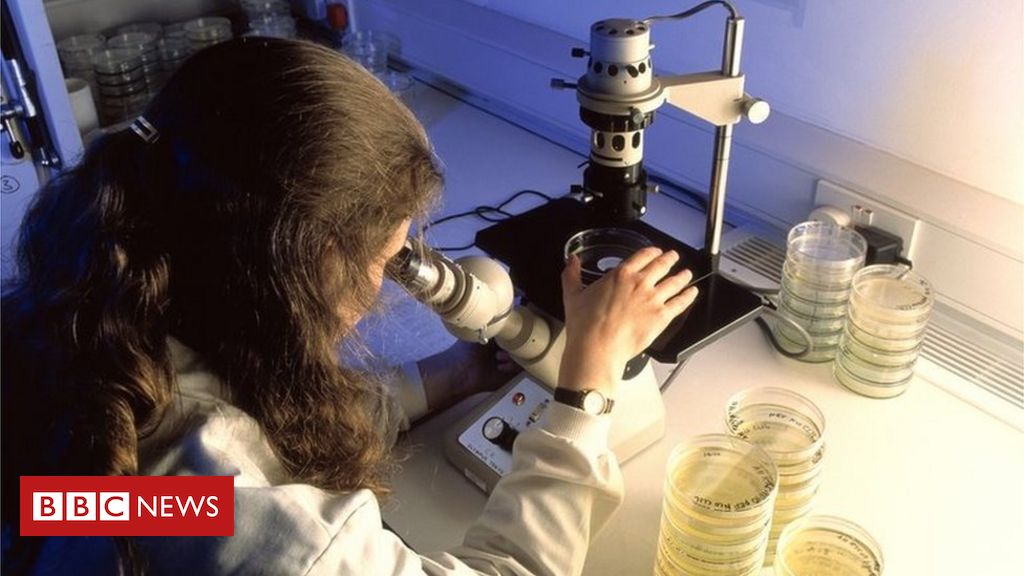A new body, called "Office for Talent", will be set up in No 10 to encourage scientists, researchers and innovators to come to the country, the government has said.
It will be tasked with making immigration "simple, easy and quick" for those wanting to move to the UK.
The initiative comes as the UK seeks to recover economically from coronavirus.
Some scientists have warned that uncertainty over Brexit could lead to researchers leaving the UK.
- Universities warn of going bust without extra cash
- Chancellor pledges big increase to research spend
In addition, the government says its new Research and Development Roadmap will cut "unnecessary red tape" in a bid to encourage scientists, researchers and entrepreneurs to work and study in the UK.
The roadmap includes a £300m investment for upgrading scientific infrastructure and a promise to support "innovators and risk-takers".
The plan also includes extending the time foreign graduates can stay after their PhDs are completed.
And, the government says, the roadmap will support efforts to tackle climate change, develop new medicines, strengthen national security and improve public services.
An Innovation Expert Group will also be set up to review how the government supports research "from idea stage right through to product development".
Under a new graduate route, international students who complete a PhD from summer 2021 will be able to live and work for three years.
The government also says it wants to change the immigration system to extend visa application windows for prospective students and remove study time limits for those at postgraduate level.
No 10 also plans to launch an innovation fellowship programme open to international and national digital and tech talent to help deliver public services
Business Secretary Alok Sharma said: "The UK has a strong history of turning new ideas into revolutionary technologies - from penicillin to graphene and the world wide web.
"Our vision builds on these incredible successes to cement Britain's reputation as a global science superpower."
In September of last year, a former government advisor said funding science was the number two priority after Brexit for the prime minister's senior aide Dominic Cummings.
And writing in his blog in 2019 Mr Cummings said that the government spent about £250bn a year "with extreme systematic incompetence" and called for money to be spent on "high-risk-high-payoff visions".
'An exodus'
President of the Royal Society Venki Ramakrishnan said the UK's success had been built on attracting talent from around the world, as well as home grown researchers, and welcomed steps to achieve that.
"Our participation in EU research programmes has benefited everyone and it is good to see the government's renewed commitment to continuing that fruitful association.
"Maintaining the UK's position as a scientific leader is essential to our long term success as a nation and will be crucial to rebuilding jobs and the economy as we recover from the pandemic."
The UK government has said it wants to negotiate its continued participation within the Horizon Europe research programme as part of the post-Brexit talks, however a overall deal between the UK and EU has yet to be reached.

